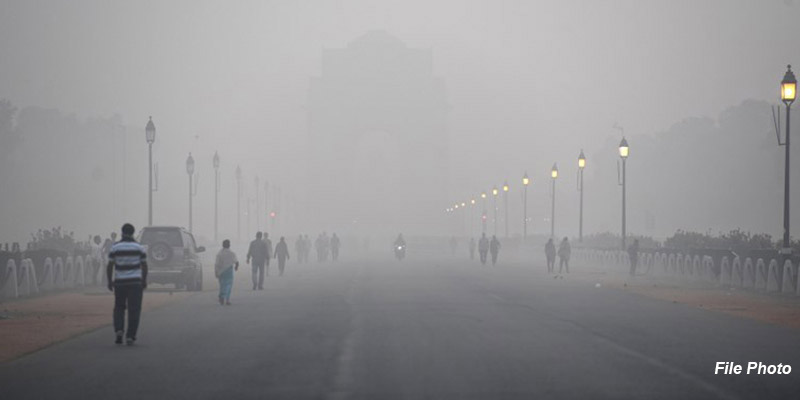- India
- Jun 04
- Sreesha V.M
CAQM issues directions to curb solid waste burning, landfill fires
• The Commission for Air Quality Management (CAQM) in the National Capital Region (NCR) and adjoining areas has issued statutory directions to control air pollution from municipal solid waste (MSW) burning/biomass burning and incidences of fire at sanitary landfill (SLF) sites and dumpsites.
• The decision aims to tackle one of the major contributors to air pollution — open burning of municipal solid waste (MSW)/open biomass generating Particulate Matter (PM10 & PM2.5) and other harmful gaseous pollutants (NO2, SO2, CO, Dioxins, Furans, etc) in the region.
• The CAQM has directed the concerned agencies in the NCR to take appropriate actions under two broad categories with a view to prevent fire incidents and resultant high levels of air pollution.
They are:
i) Management of legacy waste at sanitary landfill sites and dumpsites — prevention of fire incidents.
ii) Management of fresh generation of MSW — prevention of fire incidents through open burning of MSW/biomass, etc.
What is CAQM?
• The Commission for Air Quality Management (CAQM) in the National Capital Region (NCR) and adjoining areas has been constituted through promulgation of an ordinance in October 2020 to replace multiple committees and streamline public participation, inter-state cooperation, expert involvement, research and innovation so as to mitigate the issue of air pollution.
• Later, a Bill was passed to replace the ordinance.
• The Commission has been constituted under the Commission for Air Quality Management in NCR and Adjoining Areas Act, 2021 was notified for better coordination, research, identification and resolution of problems surrounding the air quality index in NCR and adjoining areas.
• The Commission is mandated for a coordinated approach to address the problem of air pollution emanating from all such sources, which inter-alia include power, agriculture, transport, industry, residential and construction.
• The broad-based Commission to have a dedicated and participative mechanism, adopting a collaborative and participatory approach involving relevant central ministries/ departments, state governments, local bodies and other stakeholders to tackle air pollution.
• The Commission, from time to time, has been issuing advisories and directions containing policy initiatives and actions directed towards improvement of air quality in the region.
As per the Act, three statutory sub-committees have been constituted towards prevention, control and mitigation of air pollution.
They are:
i) Monitoring and Identification
ii) Safeguarding and Enforcement
iii) Research and Development.
• The Commission has also constituted other sub-committees on Graded Response Action Plan (GRAP) for specific purposes besides constitution of expert groups for certain tasks towards abatement of air pollution in the region.
(The author is a trainer for Civil Services aspirants.)

